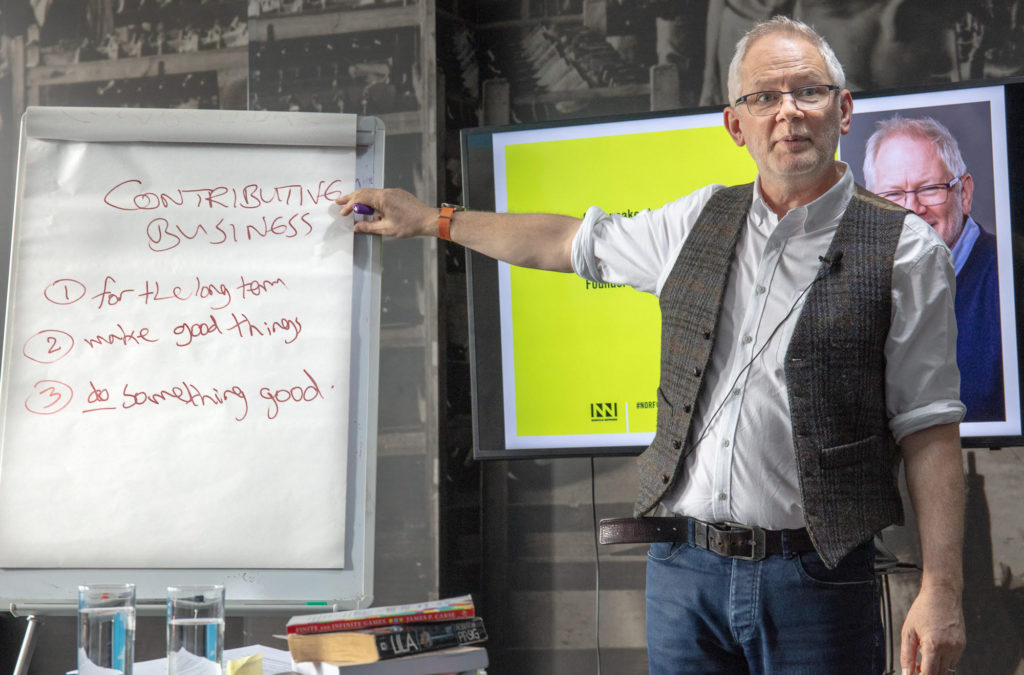Simon Middleton joins us to discuss branding, messaging and the future.
Do you like a volvo? Of course you do. But why do so many of our favourite TV detectives drive them? Because as a brand Volvo is safe, secure and reliable. And that’s what we want from our detectives. In this way, it’s the perfect TV brand pairing. A great example of where a brand is used as shorthand to express or deliver a particular meaning for the viewer.
And why does this work so well? Because brand is trust, belief and stability and it surrounds us. We make decisions based on brand, and those decisions are often subconscious ones influenced by the brands we see, hear, experience and feel each and every day.
To date we have learnt that to have a successful brand it needs to be Authentic; Distinctive; Compelling; and tend towards Excellence. Once you have these four strong pillars your brand can sail happily off into consumer heaven. But if brand means something. Why is it dying?
Our world is rapidly changing, and we are alive in a time where there is huge instability. Tech is changing our landscape significantly and at a pace that we haven’t seen before. This rapid change means that all that we have known may well be irrelevant, and this includes brand.
Brand is dying – so what does the future hold?
The astronomical pace of change we are experiencing has meant that brand as we know it is dying. Content and the art of storytelling is dead too because people just don’t care anymore, they’ve heard it all before.
The new face of brand is all about what you and your company do rather than what you say. It’s not enough for John Lewis, Apple, Nike, Jarrolds, and Adnams to simply provide us with a good experience, a good product or a good service. Consumers of the future will be asking brands “what do you do for the world?”, “in what way will you contribute to our future?” and it is all about how successfully companies demonstrate this to the world. If these actions aren’t back up by the messaging, their brand will fail.

So will the Alpha generation tear down current branding constraints?
Hopes and aspirations are that this new generation will pick up on the theme of lasting moral value and embrace brands that take themselves forward without destroying the society around it. This would mean a move away from the competitive models of winning or losing, and instead move towards a model of “infinite play” or the “contributive business model.”
This model would see companies in business for the long term. They would be there to create or make good things. They would enhance lives, grow their communities, and improve the environment. With this core moral compass in place the future for our environment, our societies and our planet would be about community, care and contribution, and less about profit, efficiencies and the self.
But can Brand adapt to embrace this? Well of course it can. So maybe it’s not quite dead.
